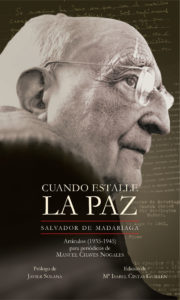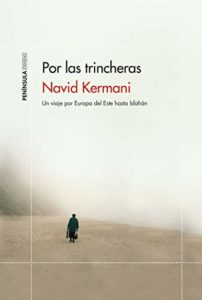Cuando estalle la paz Artículos (1935-1945) para periódicos de Manuel Chaves Nogales, Madariaga, Salvador de (2020)
[:es]+info: Editorial Confluencias En la década de 1935-1945, una de las más decisivas para España y Europa en el siglo XX, … Leer más











